#jason todd patron saint of victims
Explore tagged Tumblr posts
Text
It means so much to me that Jason is both very much a victim, and he is so loud and hurt and unrepentant over it. He isn’t interested in silently enduring like some kind of romantic martyr. There is no nobility in pain. It is not beautiful.
And the harder different writers have tried to retroactively make him mean and unsympathetic the more i love him. Yes! He’s angry and mean because his life has been cruel and unjust and that is worth getting angry about.
#‘jason should get over it already’#you should shut your bitch mouth#jason should scream louder actually#jason todd patron saint of victims#dc#red hood#jason todd#batman
2K notes
·
View notes
Text
#this just in: therapy is not some place you go where your therapist beats you over the head and tells you how wrong you are#and community/interpersonal healing is one of the later stages of trauma work so like who's doing that for him?? no one#trauma healing is about safety#and Jason canonically cannot be safe like he just cant#because of his very specific brand of trauma and specific brand of abuser#people using therapy as a way to tell someone they are fucked up and wrong never ceases to fucking SEND me#because thats not how therapy works#you dont go into therapy and the therapist like tells you what to do or makes moral judgements about you#that's called value imposition and is deeply unethical#(i would like to say personally that therapy is the ideal way to healing but there are a lot of compromised healers out there that do more#harm than good)#also i think that the therapeutic value of killing the joker would be good for jason so like get fucked bruce#jason todd
@captainclovis tags
I am ardently in support of therapy and especially therapy being made available to all people, but I'm also very critical of the rhetoric that thereapy is the ideal and true way to healing and betterment.
I think the meta stance that Jason needs therapy is frankly ridiculous. It upsets me so extremely because the western origin for therapy and psychiatric support is so deeply steeped in blaming victims and just wanting people out of sight & out of mind.
Reading both the way the batfam will demand Jason get help and the way that some voices within the fandom call for it, they just both sound superficial. Not as much "we want him to feel better" but far more "we want you to be better", specifically, wanting him to adhere to some standard of good that Jason doesn't get to decide and create himself, but that is patronizingly imposed on him.
Everytime the batfam brings up therapy with Jason, it is never because he just expressed distress or a need for help, but always because he does something that they disapprove of.
It is more of a token item to check off before being allowed to ethically punch him in the face. As if having brought up therapy means it is now ok to bring him down. Comics will often explicitly show internal monologue saying something like "I tried as best as I could". It's still just an excuse to not feel guilty about not listening to Jason or trying harder to speak with him. Confrontations between Jason and the Bats take only a few panels to regress into fistfights.
Maybe Jason could use therapy, maybe his situation is too messy!! Either way, even if he were to get therapy, Jason deserves to have his family trying for him regardless. He shouldn't have to prove himself first before being loved. And no matter what, if it's his decision to not go to therapy, then that is valid.
Healing from trauma does not happen only within therapy. You can heal without it and even when you do go to therapy, you also need supporting and understanding family and friends. And frankly the Bats are so not holding up their end of that deal for Jason.
247 notes
·
View notes
Text


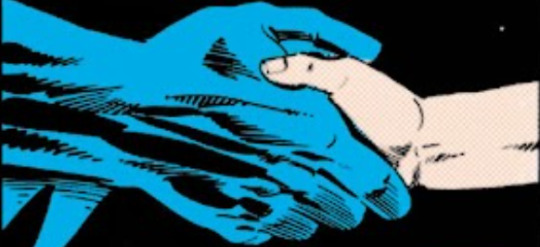

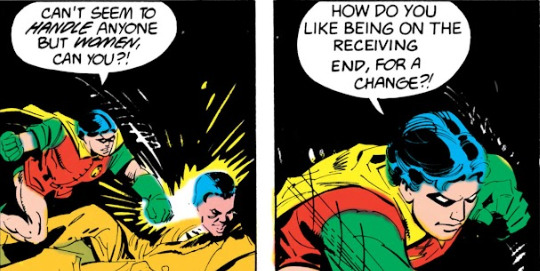

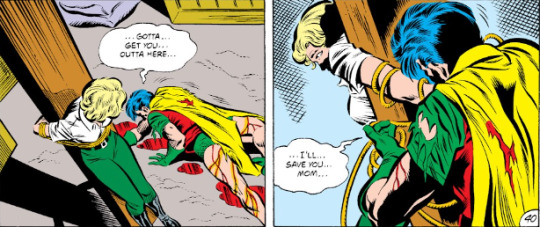

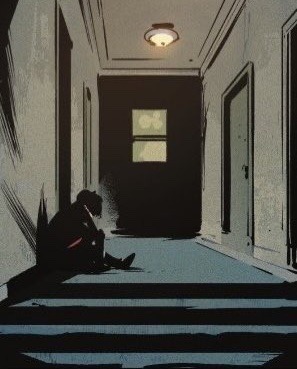

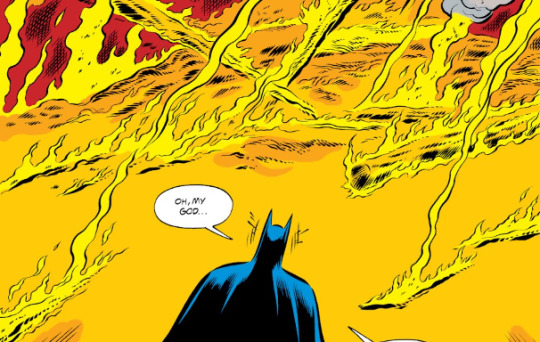

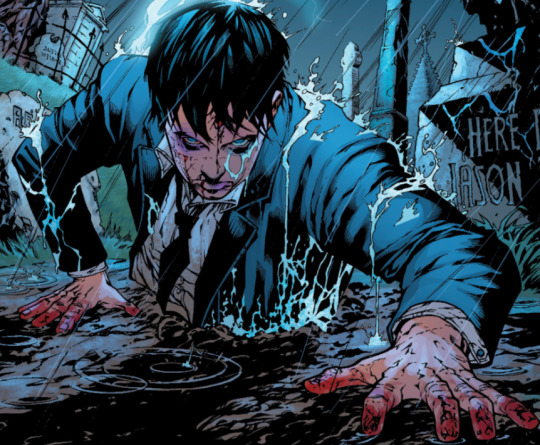
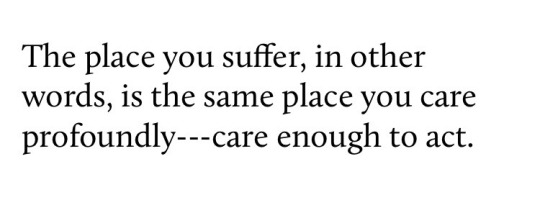
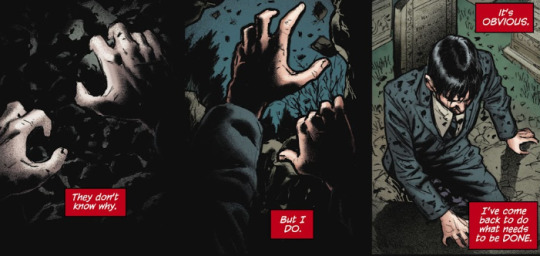
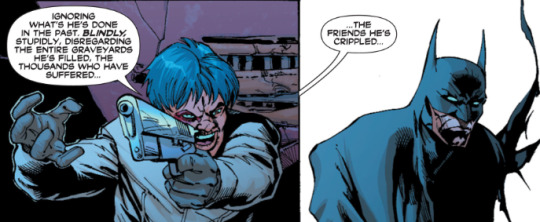

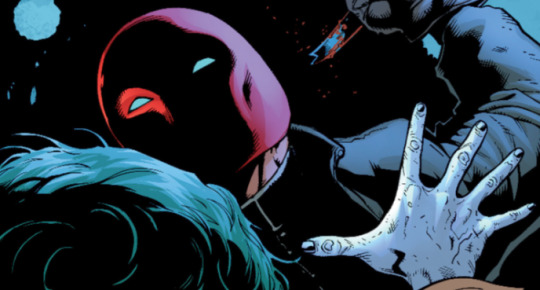
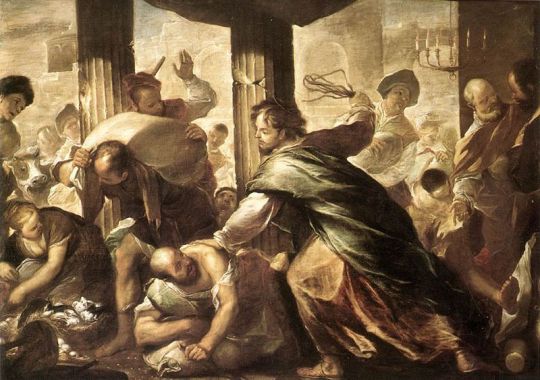
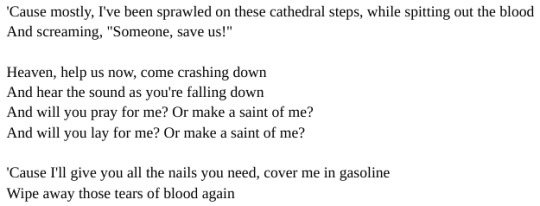


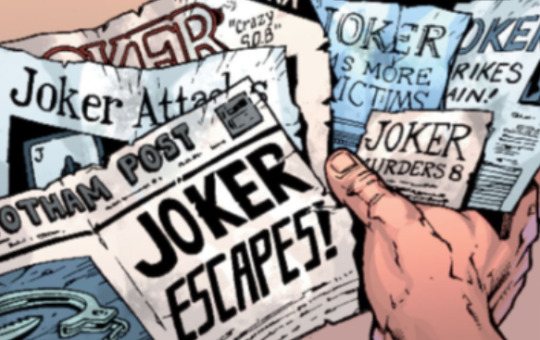




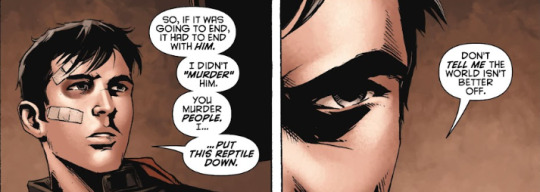

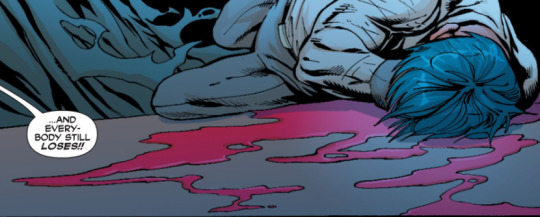
Jason Todd: Holy | Patron Saint of Victims
Behind the Name, Angus Dei - Francisco de Zurbarán, On Psalm 30 - John Trapp, Frankenstein - Mary Shelley, No One Would Riot for Less - Bright Eyes, Creature - Half Alive, Bittersweet - Susan Cain, The Civil War - Anne Sexton, Christ Cleansing the Temple - Luca Giordano, Heaven Help Us - My Chemical Romance, Serenade - Adélia Prado, If My Body Could Speak- Blythe Baird, Jacob Wrestling with the Angel - Alexandre-Louis Leloir, Odes to Lithium - Shira Erlichman
771 notes
·
View notes
Text
Howdy, friends!! My name is Jace and I am mentally unwell about Jason Todd, patron saint of bad victims 🥺
He's my pookie and he's never done anything wrong in his life 😜
Black + Bigender + nblm (prefer using gay cause I'm masc presenting) + 31 y/o ✨
I follow from @bear-fam, so don't be surprised if you see that name 30 million times in your notes 😇
Ask box is open but I'm not accepting anons 😘
Unless specified, assume I am talking about post crisis, pre Flashpoint/n52 continuity 🥴
0 notes
Text
Our Saviour Red Hood, Patron Saint of the Poor and Downtrodden, Protector of Gotham
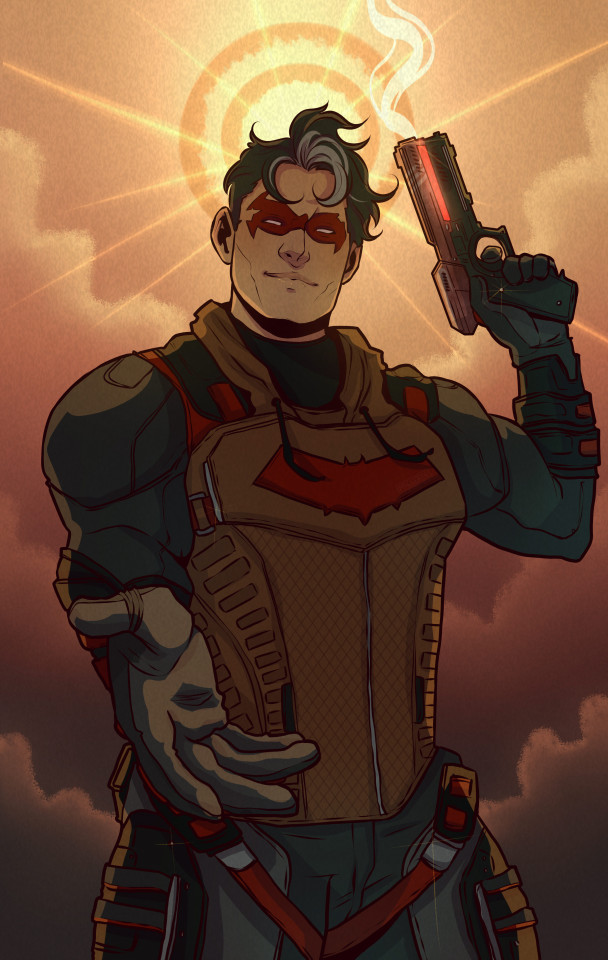
“Hey, it’s okay. You’re safe now.”
(art by the wonderful @gotham-gargoyle )
Some ranting, theory-crafting and inspiration behind this commission under the cut :)
While both Jason and Bruce care deeply about their beloved city, between the two of them, Jason is way more concerned about the little people than Bruce is. They both took “be the person you needed when you were younger” to heart, but Bruce’s effort concentrate on big things, big goals, big projects. He’s impersonal. He’s a strategist. Jason’s more about making sure nobody else has to have a childhood as shitty as he had, and thus takes care of children, single mothers, the poor and downtrodden.
And that’s where my idea comes from.
We all know and love the concept of Batman starting off - or continuously being - a cryptid; an urban legend about Gotham having a protector that hunts criminals at night. But what about Red Hood? Many people see him as way less mystical in comparison, way more down-to-earth, and I can agree with that. Because while Batman is a legend, Red Hood is one of us. He doesn’t try to pretend he’s not just a dude that had enough.
Yet, being a vigilante with a secret identity by default comes with a high level of mystery associated with you; it goes along perfectly with Cryptid Batman, but clashes with Red Hood’s schtick. As such, the weird mix of familiar but secretive, powerful but human (as opposed to Batman’s legend of monstrosity) can result in a very peculiar relationship between Red Hood and the people of Gotham.
Please imagine with me:
Hood marks places and buildings with a little red bat to denote his territory and off-limits areas that doing crime in will be heavily punished. People pick up on the symbol and attempt to use it to fool and scare away wannabe robbers. But it quickly evolves into a red bat just becoming a good luck and protection charm, like a rabbit’s foot. A symbol of allegiance, even, a following.
If you need help, it seems like a no brainer to try to bribe a vigilante somehow before you ask them to deal with the hooligan in your neighbourhood. But few are brave enough to try and approach Batman, Nightwing refuses everything and helps anyway, and Red Robin is hard to find and talks very little. Now Red Hood? Red Hood approaches you. He is the one that talks, asks if you have issues. He knows your name. It’s easy to exchange food and info for a promise of aid. Sometimes, when you can’t seem to run into him, it’s enough to leave out a burger with a red bat scribbled on the bag, and he’ll know you need some attention. From that, it’s only one step to offerings.
While Batman is vengeance and justice, a shadow that haunts the evildoers of Gotham, someone who’s name you fear, Red Hood becomes... a protector. Fierce and dangerous and not invoked lightly, and feared by those who seek to harm his people, but one that has the absolute trust and loyalty of his proteges.
Like that, step after step, people start slipping. From a street rat that just wanted to help, Hood becomes a figure of reverence and maybe even worship. The ghost of Gotham. The soul.
Truly “a better Batman than you’ve ever been”, Bruce.
#dc#dc comics#jason todd#red hood#fanart#batman#saint red hood#tank jason todd#jason todd patron saint of victims
7K notes
·
View notes
Text
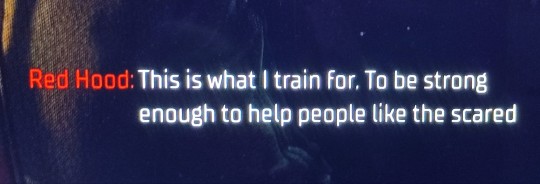

JASON PATRON SAINT OF VICTIMS TODD
4K notes
·
View notes
Text
Jason "no kids" "no abuse" "respect women or Else" Todd, my beloved








patron saint of victims (especially us bad and vicious ones)
846 notes
·
View notes
Text
@bloodyentrails have you seen this 👀👀👀
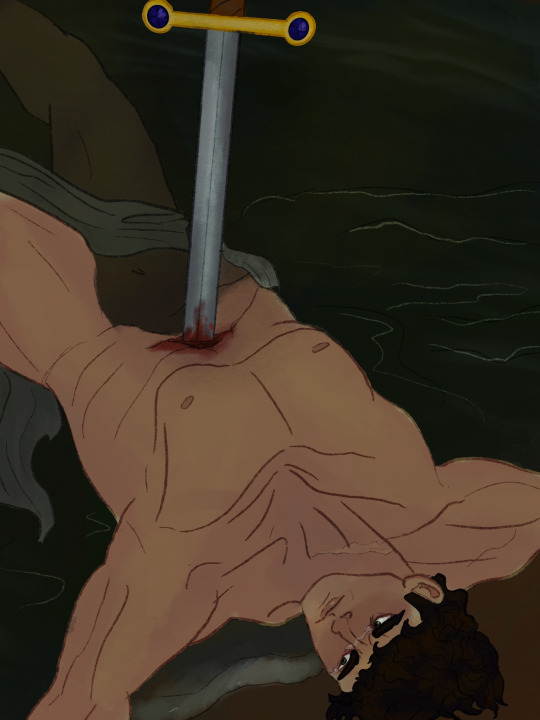
He’s like a Shakespearean tragedy to me. He’s Ophelia drowning in the waters. He’s a christ figure to me. He is Jesus and Bruce is Judas: The ultimate traitor. He has wormed his way into my brain and will never leave.
57 notes
·
View notes
Text
This post got me thinking
In that post these panels are included. Panels that deeply resonate with me


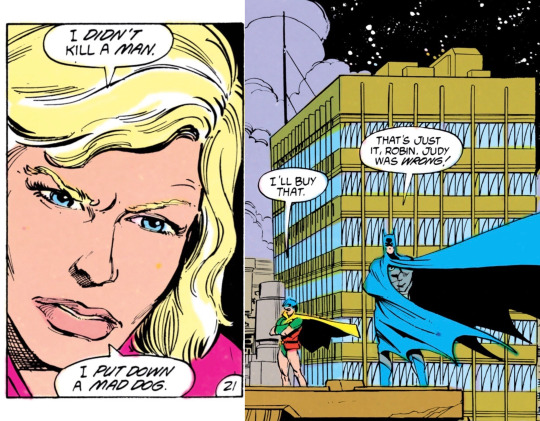
Jason Todd's Robin is the patron saint of abuse victims.
This is the Jason Todd I want to see more of. I want to see him become more of a grown version of the robin that he was. To see him use violence as a means of protecting the innocent against abusers that will not stop, staying firm in his morals despite Batman's. Wish this is the Jason we got. I will forever be enraged that we have been cheated of a truly controversial hero, who's morals might actually not be that wrong upon deep reflection.
308 notes
·
View notes
Note
Your Jason Todd patron saint of victims tag has been living in my head rent free. I love it so much that I want to get art commissioned of it or something 😭
Hi! I'm happy you had the same reaction I had when I first encounter it, because it's not my tag, I stole it from @forcesofnatureunleashed and @arkhamnyanight, their meta's are amazing!
Also for the art @iriascend had a similar concept that you may like!
It's not quite "patron saint of victims" but close.
(also I maaay do something for that, maybe, if the art muses collaborate, wish me luck)
11 notes
·
View notes
Text
Before the semester kicks off and murders me, @disniq asked for my essay on Jason Todd and hysteria. So, without further ado, here is an actual essay (fucking dissertation) because I refuse brevity. It is extremely long. I’ve split it into sections so you can find the section header and read what you want. This does not encompass all the narrative trauma themes and lived experiences that this boy holds, just specifically hysteria.
Jason Todd, The Hysteric & Bruce Wayne, The Batman
I think it’s a common reading that Jason Todd is girl-coded and the patron saint of victims, at least within the circle that I’ve fallen into within this fandom. There are plenty of meta discussions on why those readings stand, so I’m not going to reiterate them. A pillar of him being girl-coded and someone trauma survivors have latched onto as one of our own has to do with being written in the context of hysterical femininity. And let me just say, I don’t think that writing was done in a way that he was intentionally coded as hysterical, but it is a function of our patriarchal society that this coding was used on him albeit without the explicit purpose of writing a hysteric story.
For the purpose of this post: the word woman includes ciswomen, transwomen, and any person who is socially positioned as a woman regardless of gender identity. I include the positionality here because anyone can experience misogyny and sexism depending on the perception of the perpetrators either interpersonally or systemically.
The History and Context of Hysteria
To understand the context, we have to look at the history and oppression of hysteria. Hysteria (in the modern context of psychology) emerged in the nineteenth century and is difficult to define by design and often applied to traumatized, unruly, and broken women. The main patriarchs who contributed to hysterical study were Jean-Martin Charcot and Sigmund Freud. I only mention this because it’s important to know their names moving forward for any of this to make sense. The beginning of this started with Charcot literally putting women whose lives had been marked by rape, abuse, exploitation, and poverty on display in his Tuesday lectures (which were open to the public) to show his findings on hysteria. This was actually seen as restoring dignity (fucking yikes) to the women because before Charcot these hysterical women were cast aside and not treated at all. In Charcot’s work, the women’s speech was seen as simply “vocalization” and their inner lives, their stories, their words, were silenced. After hearing a woman cry for her mother during one of the public sessions Charcot remarked, “Again, note these screams. You could say it’s a lot of noise over nothing” (Herman).
This led to Freud, Charcot’s student, wanting to surpass his teacher by discovering the cause of hysteria. This was disastrous. Freud started with listening to the hysterics. In doing so, he learned and believed them about the abuse, rape, and exploitation of their pasts. He then published his work and gave a lecture on it. The work rivals even contemporary psychological work on trauma in it’s level of compassion, understanding, and treatment of survivors. However, he was then labeled a feminist (this was all happening during the first wave of feminism) and professionally ostracized. How in the world could these aristocratic French men be sexually abusing their wives, sisters, and daughters??? Insanity, truly. And... This always fucking gets me. He recanted his work and then told his patients they all imagined it because they wanted to be sexually abused by their husbands, brothers, and fathers. This set back the study of trauma by literally a century. One colleague called his work “a scientific fairy-tale” simply because he had the audacity to believe victims. Also, I want to point out that the famous hysteria case during this time was the case of Anna O and she was ultimately villainized by the entire psychological community for going into crisis after her care provider abruptly ended their therapeutic relationship after two years of DAILY sessions.
Anyway. We can see how the power of these men over vulnerable women silenced, pathologized, villainized, infantilized, and used male ‘logic’ to completely destroy their credibility and lives under the guise of care and hysteria. Even when credible men lend their expertise and voices to the victims, their voices are silenced. This particular iteration of hysteria lasted over a century, and we are still dealing with the consequences of these actions and ideas within our social construction, medical and mental health care, interpersonal relationships, and more. Patriarchal pillars such as hysteria don’t die. We saw it move from hysteria to schizophrenia (which used to have the same symptoms of hysteria before the diagnosis changed in more contemporary psychology) after this which led to widespread lobotomies and electroshock therapy (my least favorite case of a lobotomy being done is on a woman who was diagnosed with LITERALLY ‘narcissist husband’) to depression in the 40s-50s with the over prescription of benzodiazepines to house wives to keep them in a zombie state (these prescriptions were sometimes double and triple what we take today with the intent of medical catatonia). In my opinion, as well as other counselors within the feminist therapy theoretical orientation, we are currently seeing it with the emergence of borderline-personality disorder. Think about how BPD is treated and demonized for a second. I professionally know therapists who refuse to work with BPD clients due to this villainization and just fucking gross perception of victims.
These are just the highlights, but it shows the history of hysteria. There have been centuries of women being marked as hysterical and the cures have ranged from lobotomy to bed rest (which sounds not so bad but read the Yellow Wallpaper and get back to me on that one). While the Yellow Wallpaper is fictional, the life behind it was not. After the traumatic birth of her child the author, Charlotte Perkins Gilman, was remanded to bed rest by the authority of her husband and doctor. Within the sphere of medical control, hysterical women are often treated as children while their doctors make decisions for their mental well-being without consulting them, or they hide the truth of their procedures for “the woman’s own good” and because “she’s hysterical and wouldn’t comprehend the logical need for this.” She then had a mental break due to the treatment. Again, we see hysterical women being silenced, infantilized, discredited from their own experiences, and under the narrative control of male logic and voices.
Hysterical women have often historically been seen as beneath men, except for when they’re dangerous. Listening to victims is inherently threatening to the status quo because all trauma comes from a systemic framework. The framework that upholds patriarchal power. It’s easy to see why that would be seen as dangerous to powerful men. We saw this with the European witch genocide in which oppressed women were targeted and wiped out under the excuse of what was considered women’s work. (Before this time, witchcraft wasn’t tied to any religion and was mostly just seen as women’s work. It was targeted specifically to have an excuse to persecute widows, homeless, disabled, and vulnerable women who no longer had men to reign over them during a time of political unrest and scarce resources). This time period saw hysterical and traumatized women demonized as dangerous, evil, immoral, hypersexual, and supernaturally wily. A threat to the moral fabric of society.
(Interesting history side note: this caused the view of women’s base traits we have today. It stemmed from the Victorian era that came after this time period in which women learned if they behaved a certain way, they would be spared the stake. For example, before the witch trials, women were actually seen as the ones with unsatiable sexual appetites, something we culturally prescribe to men now.)
Notice how none of this has to do with the actual abuse that happens to the women, but instead the labeling and treatment of women when they are already showing the symptoms of abuse, trauma, control, exploitation, and rape.
Jason Todd, The Hysteric
So, how does this relate to Jason Todd? To say that Jason has experienced trauma would be an understatement. Extreme poverty, loss of parent to death and addiction, loss of parent to the justice system, parental abuse, manipulation, witnessing violent crimes, witnessing the aftermath of sexual abuse and assault, arguably (not explicit in the text) his own sexual trauma, witnessing the dead bodies of victims, a violent death, and subsequently a violent resurrection. There’s also an argument to be made for being a child soldier and how that is romanticized up until he dies, but the text does not treat this as traumatizing.
Now, I’m not going to dive into the trauma he experienced. The purpose of this is only to look at how he’s framed as hysterical in the narrative, and as I stated, hysteria was a word slapped on women after they tried to talk about their trauma or exhibited symptoms (or were just unruly women). Jason does embody many facets of the victim experience and this is just one of them.
Feelings vs “logic” - Firstly, it is really hard to talk calmly about things that you carry, your experiences, your trauma, and things that specifically harm you. It is easy to talk calmly about things that don’t. This is why there is an abuse tactic of gaslighting or silencing victims by framing their very real reactions to harm or their triggers as abuse, this is known as “reactive abuse.” This tactic is also employed in oppressive settings where the privileged group will often default to ‘winning’ a debate by being able to remain calm while the marginalized group whose life, personhood, etc is being harmed by the things being discussed and are unable to have a sterilized, emotionless debate.
Both of these settings fit Jason nicely within the moral context of vigilante comics. He fought back, he didn’t lay down, and he will do what he deems as necessary to protect himself and others from his fate. This, however, is framed by Bruce and others as being just as bad as his murderer or even just as bad as Joe fucking Chill. To put this in perspective of a real world equivalent. Combine every billionaire on this planet into one person and instead of their shitty business practices murdering people, they did it with their own two hands. And due to their resources and political power, they would never, ever stop killing or be reasonably contained. More people would die with absolute 100% certainty. Would killing that one person make you equally bad as that person or violating the sanctity of life? That’s the moral question that Bruce puts onto Jason. While the moral question inherent to Jason is actually, is there a line worth crossing to provide reasonable safety (for yourself or the nameless community)? There is actually a difference between those two questions and the reactive abuse framing is certainly a choice. Also, it is funny to me that a man with the amount of power Bruce has (and frequently misuses) can lecture a murder victim on the misuse of power and morality. Are we supposed to be agree with his stoic, philosophical lecturing to a marginalized, abused, murder victim? (yes, we are). Bruce leverages (personal) philosophy against victim’s voice for their own safety, and take a wild guess which one is framed as logical and reasonable.
Jason’s morals come secondary to Bruce’s philosophy in a universe where there is still harm being done (but it’s an acceptable harm). Why is killing the line? Bruce is regularly destroying families and lives by feeding them into the prison industrial complex while supporting it with his whole chest. Or he’s disabling and seriously maiming people with the level of violence he uses.
Crying - Throughout the entire story of Under the Red Hood, we never once see Bruce emote while interacting with Jason outside of tight grimaces. With the exception of the shock he shows at the Joker’s life being threatened, which... Okay, suuure. We never see him cry during any of their interactions, but we do see Jason cry. Specifically, we see him crying when he’s at his most emotionally vulnerable and physically dangerous to the toxic male power fantasy. This kind of vulnerability is rarely shown by male characters, and when it is, it’s usually done with a mist of a tear in their eyes or their face is hidden. There are a few narrative devices that allow men to cry, but they are the exception rather than the rule. Usually, it’s to play for laughs, infantilize, or emasculate. Here, we see Jason combine the violence of a bad victim, bucking the system of power, and fully crying. Just slide right into that hysterical coding like a glove. Jason often shows his feelings entirely. Time and time again, the readers have seen Jason have breakdowns, cry, and be overcome with grief. This is tied to his portrayal as hysterical and unstable in the narrative, but in actuality it shows his capacity for love and how vastly impactful his death was.

This fits nicely with the next point that Jason fits into the hysterical box. Love is framed as one of his key faults. A son reaching for his father.

Love - One of Jason’s defining features is the amount of love and compassion he holds. He’s willing to put up with any treatment, shoulder blame, and sacrifice himself for others to almost an unhealthy degree. However, this doesn’t extend to what he defines as his baseline safety. This one line of safety is the one thing that can’t be crossed, even with all of the love he feels for his father. He desperately wants to feel connection, have a family, and be loved in return with the same unwavering ferocity love that he gives. This is such a fucking key part of the victim experience, especially victims of childhood trauma. The desperation to just be chosen. He’s raw and honest with his reasonable expectation for love to provide safety for him and that is framed as hysterical, needy, unstable, naive, and fucking childish. Victims know what they need to have safety, and this framing as Bruce knowing what’s best for Jason and literally giving a cold shoulder to his needs is disgusting.
Less than - Jason is portrayed as less powerful than Bruce even though they have similar expertise. There are so many instances of this that if you just open any media they both appear in, you can close your eyes, point, and land on an example. It makes me die laughing every time I remember that the Arkham games made Jason just one inch shorter than Bruce. Like, they can’t even be the same fucking height, that’s the level of insecure masculinity surrounding this relationship. Jason cannot and will never be able to be on par with Bruce because of his hysterical femininity and the power of Bruce being the self insert for the toxic male power fantasy. This power dynamic applies to the other batkids as well, but specifically in Jason’s case there is an element of hysteria. The reasons change because he’s so inconsistently written but usually he can’t surpass or even meet a stalemate with Bruce because he’s too emotional, he’s unstable, traumatized, and simply Bad. It’s even explicitly stated by Alfred in Under the Red Hood.
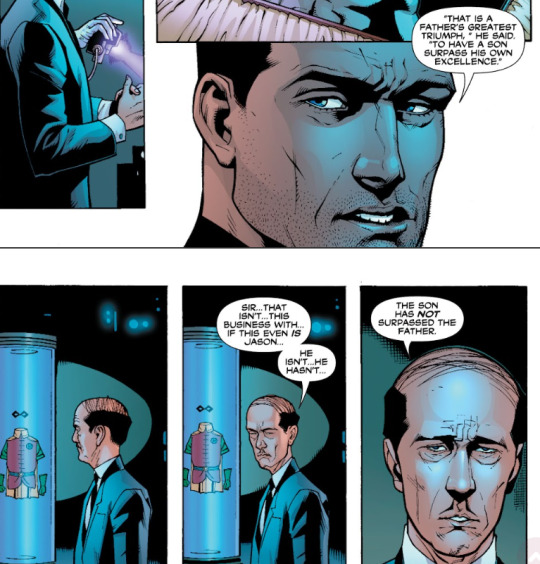
Victim blaming - Jason deserved to die because he didn’t follow orders. Jason deserved to die for not following his training. Jason deserved to die because he was an angry Robin (oh no a child had an appropriate reaction to sexual violence). Jason deserved to die for being human.
Infantilization - Jason is repeatedly infantilized in contrast to Bruce. When given the ultimatum at the end of UtRH, Bruce speaks to Jason like a child, or a bad dog. Ordering him to do things like, “enough!” or “stop this now.” Bruce knows what’s best for Jason (and for everyone in the entire world), we should really just take his word for it and not the victim’s. Imagine staring at a 6 foot wall of a man and scolding him like a child. Beyond that, as mentioned above, his views of love and safety are framed as childish. Even though they are actually leaning more toward collectivism rather than the rampant individualism that Bruce so strongly defers to. (also, just a side note, collectivistic methods in healing from trauma is actually the only scientifically reliable way to heal. Every other method has absolutely abysmal results and higher rates of relapses.)
Silenced and Safety Villainized - Jason is silenced in his own story, acceptable and honored when he was dead and met with vitriol in life. All of the love given to him as Robin turns to ash as soon as he collides with Bruce’s power and morals. I think any survivor can relate to the experience of being told that what happened to them was a long time ago and it’s time to move on. Or even that they’re leveraging their own safety to get what they want in a manipulative way. Regardless of whether or not there was any accountability or justice for the harm done to them. Alfred asks Bruce if he should remove Jason’s memorial in the cave like two seconds after learning of his resurrection because Jason’s methods of securing safety for himself and using his own voice to define his story. Bruce was able to tell Jason’s story when he died. He was able to memorialize, grieve, and ultimately define Jason’s story because Jason wasn’t there to speak for himself. When Jason does speak for himself, he is villainized and literally stripped of his past significance as Robin (or a good victim) by Alfred within seconds. This is reflected in real life with adoptee advocates speaking about how adoption is unethical/harmful/traumatizing and subsequently being framed as ungrateful, selfish, etc. They were little perfect victims without voices before they grew up and could speak for themselves.
Erased - Gestures at the entirety of how Jason is either talked about or completely erased during the 90s Tim Robin run. He wasn’t convenient to talk about, as victims rarely are. This also ties into how Steph’s death was erased and Babs was written like she “won” at trauma by simply... beating it???
Dangerous - Jason is framed as threatening the basic fabric of society (in a story with vigilantes this is hard to do, so they have him oppose the no-kill rule, and then doubled down on Bruce’s characterization of no-killing). Anything that bucks the status-quo is usually marked as villainous in mainstream vigilante/superhero comics, but this is a step beyond that into the interpersonal and political sphere. Hysterical women are often framed as dangerous, villains, snakes, and treacherous (the other side of this coin is weak, pathetic, and pitiable) because they are victimized and then have the audacity to do something to the system about it. Whether that be the system of their immediate families or the political sphere. I don’t think it’s a coincidence that Jason was paired with Talia in Lost Days to hammer this point home to the reader. It could’ve just as easily been anyone with access to the Pit that rescued him, but no, we had DC’s favorite brown, treacherous, venomous, female punching bag.
Bruce Wayne, The Batman
Bruce fits well into the father, enforcer, and logical man slot in Jason’s hysterical story. There is a history of ownership throughout women’s history when it comes to their subjugation to men. Women actually couldn’t be put on trial before the witchcraft genocide because they weren’t seen as legally a person. Their male owner would be put on trial instead. Women would go from being owned by their fathers to their husbands after entering marriage, the most dangerous woman being one who isn’t owned (orphaned, widowed). Bruce does treat (and even thinks) about Jason like he’s something that he owns. He’s his protege, his son, and his responsibility.
The narrative function of Bruce as a perpetrator in Jason’s story.
“The perpetrator asks the bystander (reader) to do nothing. He appeals to the universal desire to see, hear, and speak no evil. The victim, on the contrary, asks the bystander (reader) to share the burden of pain. The victim demands action, engagement and remembering” (Herman).
Bruce does remember what happened to Jason. He keeps a permanent memorial to his dead son. However, this doesn’t translate into any kind of tangible action. He doesn’t do anything to actually stop the murderer who took his son’s life and he continues to throw child soldiers at the problem of crime (how many children have died for the sake of his no-kill rule at this point?). When met with the reality of his inaction, he fits into the perpetrator’s role like a glove:
“In order to escape accountability for his crimes, the perpetrator does everything in his power to promote forgetting. Secrecy and silence are the first line of defense... If secrecy fails, the perpetrator attacks the credibility of his victim. If he cannot silence her absolutely, he tries to make sure that no one listens... From the most blatant denial to the most sophisticated and elegant rationalization... One can expect to hear the same predictable apologies: it never happened; the victim exaggerates; the victim brought it upon herself; and in any case it’s time to forget the past and move on. The more powerful the perpetrator, the greater his prerogative to name and define reality, the more completely his arguments prevail” (Herman).
I think it is simply fact at this point that Bruce is the head patriarch in Gotham if not, arguably, in the entirety of DC. That level of power in the narrative cannot be ignored, especially when faced with the very real, screaming voice of a victim that Bruce uses all of that power to silence. Bruce, because of his status as patriarch, default protagonist, and self-insert for the toxic male power fantasy, has the ultimate power to name and define reality. Especially to the reader. Bruce doesn’t deny what happened to Jason, because that’s physically impossible to do. But what he does do is ensure that no one listens to Jason, discredits him, and rationalizes his own inaction, actions of violence towards Jason, and victim blames.
Here’s Bruce using the most base form of denial and victim blaming:
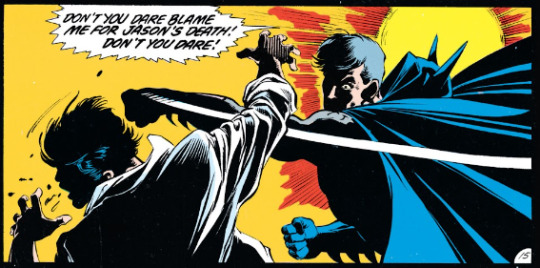

After this panel, Bruce also revokes Dick’s access to his childhood home simply for asking a question.
This theme extends to other members of the batfam because of Bruce’s narrative power over them. It’s why we can’t have Dick, Steph, Babs, or even Damian step in and relate to Jason’s trauma or vindicate him. Even when we, the readers, can see parallels and wonder why these conversations or bonds aren’t forming. Jason HAS to be a lone wolf because he is hysterical and a threat to the system of power. This also shows why most of his runs in group settings outside of the batfam fall apart or fall flat. If he was humanized by any other character or had his trauma validated in any actionable way, it would be recognizing the failure of the toxic male power fantasy. The readers are not supposed to see the flaw in this system that allows the bodies of children to pile up and sympathize with one of their voices. It would be a crack in the system of power that exists not only in the source material, but very much within our real world.
Side note: Jason is allowed to interact with others in a wholesome and validating way when he no longer threatens the systemic power of Bruce. When he is silenced by the writers and plays the “nice victim” (like Babs does), he is allowed connection. Only when his healing is done in a way that doesn’t demand action and is only his personal responsibility (gotta love the rampant individualism). If he is hysterical, demands action, and asks for someone to be held accountable for his death, he is shoved away into a lone wolf box. Examples: Gotham Knights (from my very basic understanding, I haven’t played the game, only seen play throughs) and WFA. Victims are acceptable if they do their healing in a neat little box and stay there, but hysterics are the ones who step outside of that box.
Red Hood, The Political Voice of Hysteria and Trauma
Red Hood is deeply political in terms of hysteria and trauma. Herman stated that victims and those that authentically care for them or listen to them intently (whether that be interpersonally, clinically, or professionally) are silenced, ostracized, and discredited. Survivors need a social context that supports the victim and that joins the victim and witness in a common alliance. On an interpersonal level this looks like family, friends, and loved ones. However, trauma is systemic and the social context mentioned above must also be given on a wider social scale. For this to be done, there had to be systemic change and political action. Jason had the interpersonal social support and witnesses to his trauma ripped from him by Bruce. So, we see him move onto a systemic level of addressing trauma in his own political way. He literally cannot escape Bruce and this constant trigger because of Bruce’s philosophy and just... fucking power to define reality... being re-enforced constantly in DC no matter where he tries to go. So, he tries to heal by taking the systemic issue of perpetrators who cannot be held accountable or have fallen through the cracks of accountability into his own hands in a very personal way. A one man political movement.
Whether his methods are moral or ethical doesn’t really matter in the overall framing him as hysteric. He simply has to be opposed by the male power fantasy in some significant way. This shows that the goals, needs, and work towards victim’s and the marginalized’s freedom is dangerous, doomed to fail, and ultimately unethical if the victim is framed in a villain light instead of the more pathetic/pitiable iteration of hysteria.
You can see how this is not only problematic but also reflects the real world values instilled in arguments against human rights movements (which are intrinsically tied to victims rights). Defunding the police is dangerous, the MeToo movement is dangerous, abolition is dangerous, trans rights are dangerous, etc etc etc. Think of the victims voices tied to each of these movements and how they are integral to the real change offered by these political movements. You can’t have human rights violations without creating victims. And you can’t have political movements surrounding human rights without listening to victims.
We can also see how the individuals within these movements are ostracized, villianized, and often silenced (sometimes ultimately silenced with death) because they rally against the systems of power that victimized them. The framing of traumatized, vulnerable people as hysterical is integral to upholding the system of power that traumatizes and harms them.
A popular comic book movie adaptation that highlights the importance of Jason’s hysterical framing and how it impacts the political narrative/how he is written is V for Vendetta. To be fair, it received an insane amount of backlash by conservatives (not within leftist or liberal spaces) for V’s methods in over throwing fascism, but only because of the movie’s release date being so close to 9/11. V and Jason have many parallels, it’s only the lack of hysterical framing that makes V more palatable to the viewer. We are told, not shown through behavior, that V is traumatized by his past and he does not pick a fight with the protagonist that functions as a toxic male power fantasy. He is the protag, with his version of Bruce being men who are not framed in a sympathetic, heroic, or relatable light.
Additionally, there is literally an unemoting mask standing between the viewer and V, whereas Jason takes off his helmet to allow the reader to see every aspect of his trauma and pain. V readily dehumanizes himself into an idea, rather than a person. Whereas Jason screams to be seen as a person in a very hysterical way. So, we can see how the framing of Jason as hysteric against the logical, heroic man greatly impacts how the audience reads him when contrasted by a very similar political story/character who uses similar (and arguably more violent) methods to meet his ends. (This just made me realize that I would die for a Jason adaptation written by the Wachowski sisters).
Jason’s work as Red Hood is seeped in leftist, victim, and community centered politics. His portrayal as a hysterical antagonist (at best an anti-hero) is rooted in misogyny and upholding patriarchal, capitalist, and the prison industrial complex systems of power. He is the righteous embodiment of “the personal is political” for victims. Even his Robin run draws attention to and shows correct, angry reactions to the system of patriarchal power in sexual violence.
Patriarchal Writing and Enforcement
Jason is girl-coded and hysterical because he’s supposed to be emasculated, discredited, and disliked by the reader. He serves the narrative function of boosting the toxic male power fantasy of Bruce and in doing so, the writers use one of the oldest tropes in the book (one that we have all subconsciously been taught since birth) to get the reader on their side. Make him a hysterical woman.
References: for anyone interested in furthering their understanding of any of the concepts mentioned above and to, you know, use sources for my own writing.
Barstow, A. Witchcraze
Bondi, L., Burman. E. Women and Mental Health: A Feminist Review
Freud, S. The Aietology of Hysteria
Gilman, C. P. The Yellow Wallpaper
Herman, J. Trauma and Recovery
Ussher, J. The Madness of Women.
Van der Kolk, B. The Body Keeps the Score
Wilkin, L., Hillock, S. Enhancing MSW Students’ Efficacy in Working with Trauma, Violence, and Oppression: An Integrated Feminist-Trauma Framework for Social Work Education
#jason todd#bruce wayne#hysteria#dc#meta#clovis writes#listen I regularly have to write 20-30 page research papers on therapy theory and mental health#I'm so sorry this is so long but it is actually impossible to shorten it#one of my profs once said I write in a way that's academic but still readable and know the meaning of brevity#and I was like: sir I've never been accused of brevity before#this took 3 days to write and get my thoughts straight on it#remember: you asked for this lol#holy fuck the word count on this is nearly 5k I'm so sorry#I literally can't proof read this because my brain has shut off from reading this post#there's probably some stuff misspelled and also missing from this but I'm done with it lol
491 notes
·
View notes
Text
Also the irony of it being intended as maturity the same way that society on large calls it maturity when someone has moved on from their trauma (read: become palatable and non-confronting). And fans recognizing this as a fawn response from Jason, still trying to appeal to Bruce and earn his love and protection, still trying to find a semblance of what felt like safety once and was lost forever in something that can't be undone.
The thing is that DC’s consistent choice to have Jason Todd blame himself for his own murder comes across less as maturity (the intent) and more like his self-esteem is so far down the toilet it’s been filtered through the Gotham water treatment facility and is currently being sprayed over Wayne Manor’s lawn.
#Jason Todd#and trauma#ramble on someone else's ramble#patron saint of victims#said it once I'll say it 100000 times
939 notes
·
View notes
Text
List of things I have read in the ML Salt Tag that make me a liiitle uncomfortable or makes me roll my eyes.
Alya getting arrested for her blog. (In canon, I'm pretty sure Alya hasn't even POSTED the interview yet, just inquired on a potential interview with Lila)
Marinette suddenly can charm everyone and their mother, and has so many convoluted connections that it makes Lila's lies look almost BELIEVABLE in comparison.
No seriously, i read a story where she charmed Batman's rouge gallery, INCLUDING the Joker. Yknow, the guy who murdered Jason Todd (a literal teen)??
Once read a post in which bad luck happened to the class. One of the Bulletin points literally said "Rose's kitchen burns down when she tries to make cupcakes". Wtf. That's not pettiness, that's ARSON
Speaking of attempted murder, Akumatized Marinette stories after chameleon REALLY amped up seriously harming the class. Like... I can count 7 out of 70+ akumas that have the potential to kill someone??? They're not harmless, but they're certainly not murderous.
Mari being paired up with complete assholes because 'Adrien has no Spine'. (Adrien is an abuse victim that has no idea he's an abuse victim, you cant entirely blame him -_-) These include Damian Wayne (child soldier and complete asshole who thinks hes better than everyone else) Felix (a total stereotype of every broody anti-hero ever) and even CHLOE. (Do i have to explain this one?)
Portraying Marinette as someone who's a patron saint. Didnt she... Oh, idk... SAY SHE ISN'T PERFECT???
On the flip-side, Pettynette. Turns her into Chloe 2.0. Let's see... Friends who agree with literally everything she says (and have no personality other than salt), uses connections to screw over everyone just because they didn't immediately bend over and agree, takes extreme pleasure in above statement...
The fact that her 'New Friend Group' is always the same group (Marc, Aurore, Felix, Those Quantic Kids, Kagami, Luka, Adrien and Chloe ((depends on writer))
Literally everyone's characteristics is erased. Only Chameleon and Ladybug matter in Salt Fics. Lets forget alllllll about all the good times and just be salty.
And this is only the things i can think of right now.
People can happily consume salt and make salt but like... Some of you guys just take it too far that it makes me worried. 😟
Too much salt isn't good for anyone.
#ml salt#anti ml salt#ml fandom salt#ml fandom#miraculous ladybug#miracuclass deserves better#everyone deserves better writing
71 notes
·
View notes
Text
Fantasy AU
Day 5 at @official-batfam-week: Fluff | Take Your Child to Work Day | Magic/Fantasy AU
(FYI, this is a really long post, since I make an aesthetic and wrote a paragraph for each character.)
In a world of magic, creatures of darkness lurks in the shadows. In Gotham, the dedicated vigilantes who stand between civilians and demons are members of an elite squad known as the Batman Inc. These are their stories.
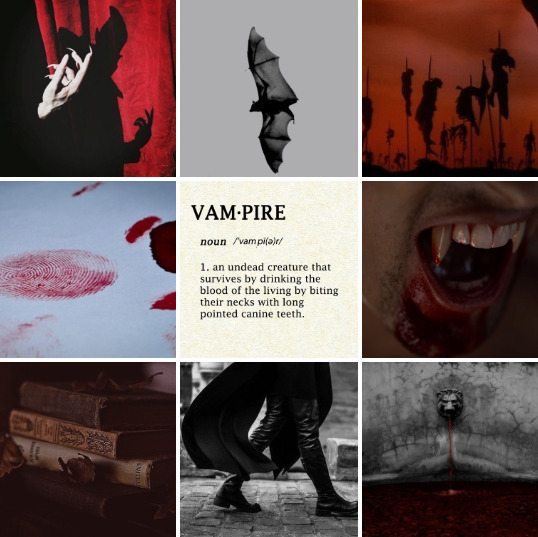
Bruce Wayne is a vampire and Gotham City’s supernatural protector. He fought as a Confederate soldier in the American Civil War (much to the displeasure of his parents), but his military career was cut short when he met Silver St. Cloud, daughter of the owner of the largest cotton plantation in Virginia. Unbeknown to Bruce, Silver was a vampire, and having fall in love with him, transformed Bruce into one so the couple could be together forever. After being reborn, Bruce not only killed Silver and the rest of her family, but returned to Gotham to slaughter his own family. But since no evil deed goes unpunished, Gotham’s patron saint, St. Dumas, cursed Bruce to feel the pain of every victim of his for the eternity… Unless Bruce can find a way to redeem himself.
Now, using the codename Batman, Bruce protects the city from evil in a attempt to remove the curse. During his quest, he has acquired many allies and friends, and is a completely changed person from who he was before.
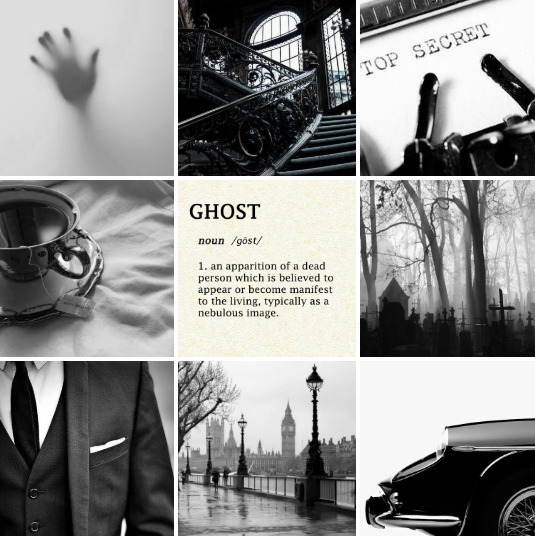
Alfred Pennyworth is a ghost and acts as Bruce Wayne’s butler and friend. Born in England and sent to America during the Revolutionary War, where he changed alliance and began to fight for the independence. He was shot dead in a battle and his soul began to haunt the grounds of what would one day become Gotham. Currently, he helps Bruce in his mission for redemption by providing information as well as keeping the Wayne Manor organized.
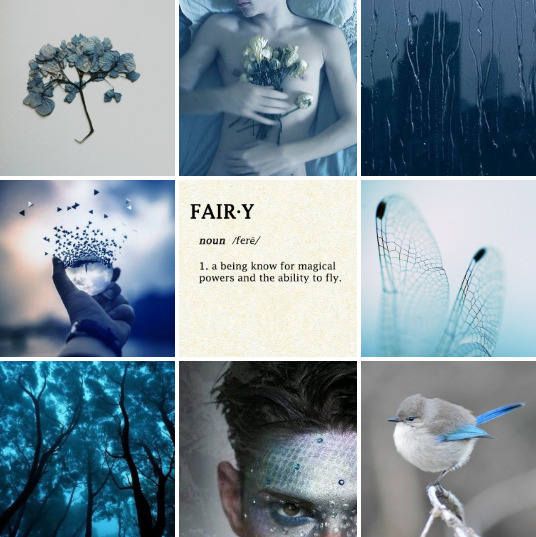
Richard “Dick” Grayson is one of the last fairies in the world. After Richard’s parents were murdered by an evil wizard, Bruce Wayne adopted him and raised him as if Dick was his own son. Trained in martial arts since a young age, Dick combines his magical abilities with his training to fight crime under the name Nightwing. He is currently dating Barbara Gordon, a.k.a. Oracle.
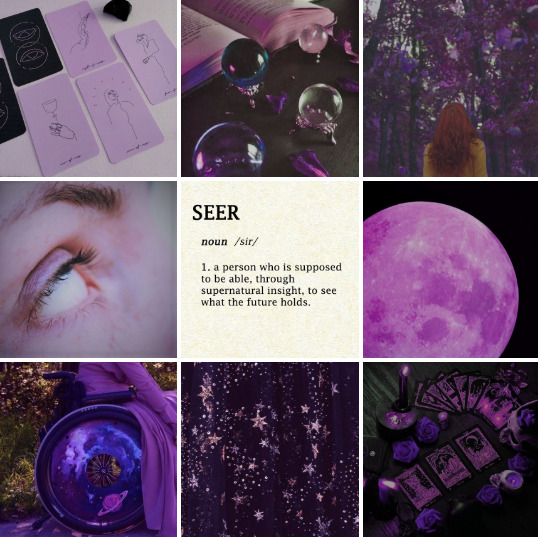
Barbara Gordon was born with a special ability: she can predict the future. Her dad is Gotham’s Police Commissioner, and she used to help him catch killers, until an attempt on her life resulted on Barbara becoming paraplegic. After that, her dad forbid her from getting involved with police work. But her powers had already caught the eye of Bruce Wayne, who offered her a position in he Batman Inc.. Now, she works as Oracle, gathering clues and spiritual trails to help Bruce solve supernatural mysteries. She is currently in a romantic relationship with Dick Grayson/Nightwing, who also works with Bruce.
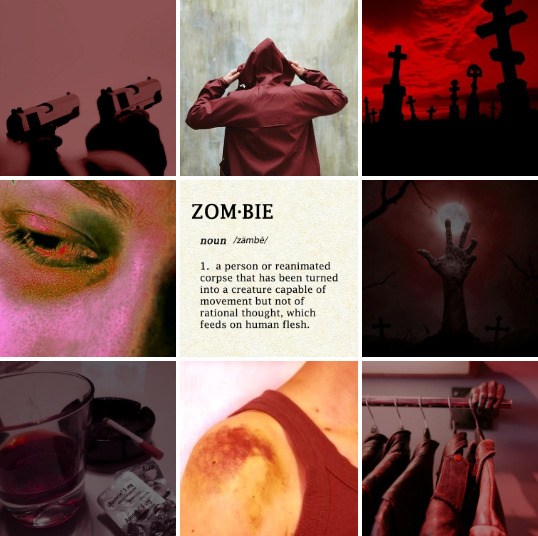
Jason Todd was orphaned at a young age after his parents were killed in a vampire attack. Bruce Wayne managed to save the boy, and taking pity of him, adopted Jason. Jason felt left out, since he didn’t have powers like Dick or Barbara. Trying to prove to Bruce that even though he was only human he could fight, Jason confronted the Joker, an ancient trickster god, by himself. Jason died in the conflict, but luckily he didn’t stay down for long, as he soon crawled out of him grave as a zombie. Now he uses the disguise of Red Hood (which was one of the Joker’s many names) to fight monsters by Batman’s side.
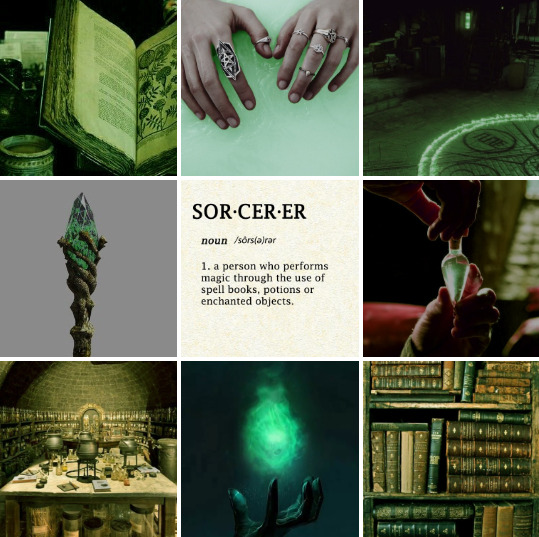
Timothy “Tim” Drake comes from a lineage of sorcerers. Having deduced Batman’s true nature as a vampire, he convinced Bruce to let him help, despite Bruce feeling unsure to work with a mortal kid again, given the recent death of Jason. Tim eventually proved himself to be very necessary and was accepted as Bruce’s protégé. He is the boyfriend of Stephanie Brown/Spoiler.

Stephanie Brown is a nymph born in the woods surrounding Gotham. When she discovered her father’s plan to destroy all humans in the city, she allerted Batman by leaving clues all over Gotham. She managed to foil her father’s scheme, and taking the name of Spoiler, she joined Batman in his crusade against evil. She’s currently dating her teammate Tim Drake/Robin and is best friends with Cassandra Cain/Orphan.
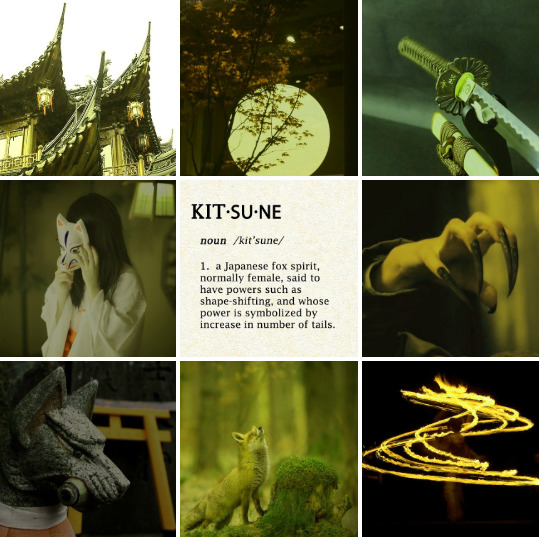
Cassandra Cain was born to a family of powerful kitsunes. Raised by her father to become a soldier on his war against humans, Cass rebelled and ran away from him, eventually finding her way into Gotham. There, Bruce Wayne took her in and treated her like a daughter. Under the alias of Orphan, she helps Batman fight magical related crimes in Gotham. She is best friends with Stephanie Brown/Spoiler.
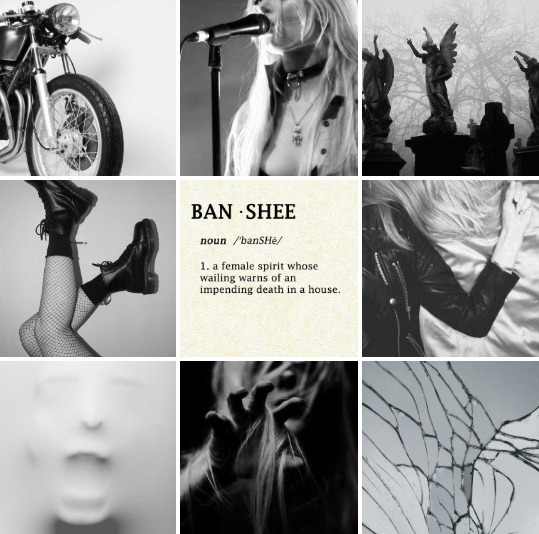
Dinah Drake Lance inherited her mother’s powers as a banshee. Following her mother’s footsteps, Dinah took the moniker of Black Canary set of in the streets of Gotham to stop any supernatural threat in the city. Her adventures led her to cross paths with Batman Inc. many times. A close friend of Barbara, the two girls often work together, and sometimes are even aided by the mysterious Huntress.

Helena Bertinelli is the last living member of the Bertinelli House, an once powerful elfic house in Gotham. When she was just a little girl, her whole family was murdered by dark elves and in that moment Helena swore to avenge her family. Calling herself Huntress, she spent years traveling the world and killing those responsible for her parents death. Helena’s quest eventually brought her back to Gotham, where she took upon herself to clean the city from the influence of the Dark Houses and to protect the few remaining Light Houses. Her violent tactics often result in conflict with Batman Inc., but despite that, she is know to sometimes team up with Black Canary and Oracle.
#batfamweek2020#batfamily#batman#oracle#bruce wayne#helena bertinelli#barbara gordon#huntress#dick grayson#nightwing#cassandra cain#orphan#stephanie brown#spoiler#alfred pennyworth#dinah drake#black canary#jason todd#red hood#tim drake#robin#red robin#edits#mine#aesthetic
19 notes
·
View notes
Text
Jason Todd- DC's Pandora's box
If you only hadn't felt the need to see.
The allure of the beautiful, the desire for what you believe it will hold and the blessings you hope to receive. Open up that casket and look inside if that which you love most can still be found.
Jason Todd is blatantly without agency for a lot of his story. Ranging from the implications of his lack of self-determination as Robin and his demise resulting as actions unrelated to him; Sheila's desires, Joker and Batman's feud, Jason getting caught up in the middle without his own motive mattering much either way, - to his lack of autonomy over his narrative while dead, being turned into a cautionary tale and getting victim-blamed over and over again for his death - finally to his catatonic state for about a year after returning to life, rendering him more object than human and with the exception of Talia he is treated as a mere object. This lack of autonomy coupled with the heaping of others' worst nightmares and biggest hopes on him turns him into an instrument for others to torture themselves over.
The thing about the Pandora's Box is that it's myth was meant to drive home the point that women were inherently evil. Because they lure you in with their beauty but they hide things beneath this surface, and how dare they be more than what they appear to be, no, what you project them to be?
Once the box of Jason Todd is opened up and he is not the potential that everyone wishes to have fulfilled through him - the loyal son come back to life - it is clear that he is no good, he is a mistake.
And saying that Jason is Pandora's Box is not just random pontification. The Lost Days comics themselves allude to this. First we have Ra's saying so:
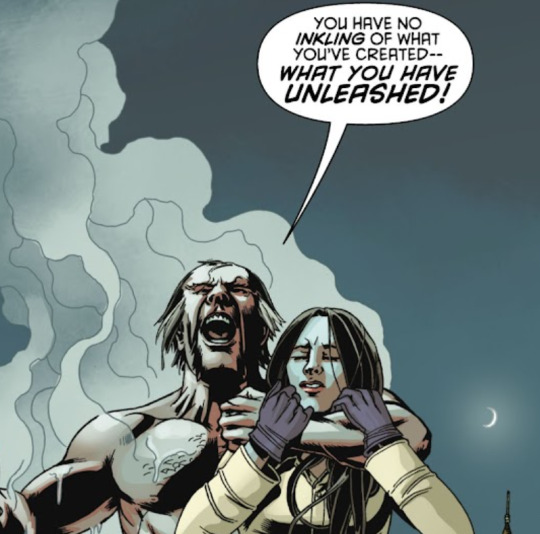
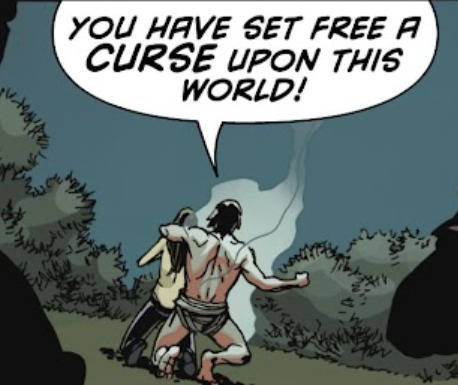
dehumanizing Jason and seeing him merely as how he affects others, namely inconveniences Ra's and is a distraction to his daughter.
Then at the end of the next issue, Jason tells Talia about his plan to kill Bruce and Talia says the same thing:
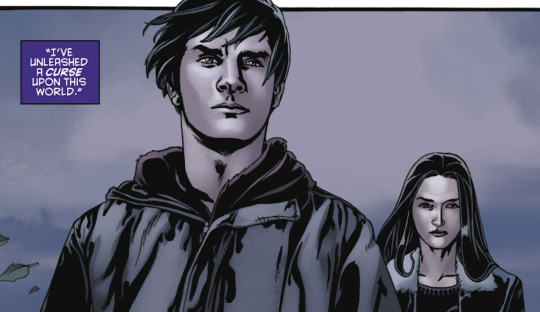
And the problem is that, while people can pontificate about whether Jason is good or bad, a net gain or a net loss, morally justified or morally apprehensive, what about Jason himself?
No one cared for Pandora or her plights, in fact ancient Greeks didn't much care for the plights of any woman. they were excused from caring about women with the Pandora's curse. Because of how others suffer due to their mere existence, it is not necessary to consider them. Never mind that the men's suffering is constructed in their own minds.
The pain that Jason puts others in by making them confront reality, that he died for Bruce's mission, is used as an excuse to not care about him either. Because he's too painful to look in the eye, because of the painful memories he brings up.
The potential of having him back was too alluring to ignore, the reality of it too crushing to accept. The only place to put all this blame for the hurt and suffering was on Jason himself. Never mins that he did not create this pain, did not ask to be brought back, that he is the one suffering most under this weight.
#Jason Todd#rambling#meta#girl-coded Jason Todd#Lost Days#to be clear Talia is the one character in his entirety of Lost Days/UTRH who views him differently#That one panel does not suffice to describe their relationship and she is the only human to see him as an act person and to care about HIM#will hopefully have the spoons to make a post about that too.#patron saint of victims
417 notes
·
View notes
Note
reblogging this to explain why I was initially so confused, it's a language barrier thing. When I read "Italian Jason Todd" I processed it as Italian in the from Italy sense. Which is why I was not getting how anyone was able to slap the p r o b l e m a t i c stamp on it, because like, is being Italian problematic now? I mean it could even be, everything is problematic for these people.
It took me an embarrassing amount of time to understand that Finn (thelionandtheeagle) was talking about an Italian-American headcanon for Jason, in the sense that he's of Italian descent. Which ties up with the "don't hc Jason as Italian because it's classist!" bullshit nonsense I'm sure many people decided to pull out of their asses in the attempt of feeling morally superior to someone else.
(btw if anyone wants to feel outraged on behalf of Italians for that, just fucking don't. It's stupid. Sincerely, an Italian person.)
Jason might very well be of Italian descent. A lot of Americans have a mixed heritage and I'm surprised there aren't more heroes and vigilantes who have one, and that's what should be considered problematic, not the other way around. Jason Todd patron saint of victims and hero of the downtrodden being of Italian descent is flattering to people with Italian descent, you absolute walnuts.
I'm highly dedicated to Italian Jason Todd. Amazing stunning brave 11/10 could talk about it for days. But you know what? I remember ages ago seeing a post from someone saying that headcannoning Jason as Italian is inherently classist and racist and goddamn will that not leave my brain. Ugh. Anyways I'll go enjoy my pizza pasta Bowery boy now 😘
Yeah well everyone knows that being Italian is classist and racist, I would know, I'm Italian.
Seriously now what? Is Italian Jason Todd a thing? Why have I never seen it, and how can it be racist?
59 notes
·
View notes